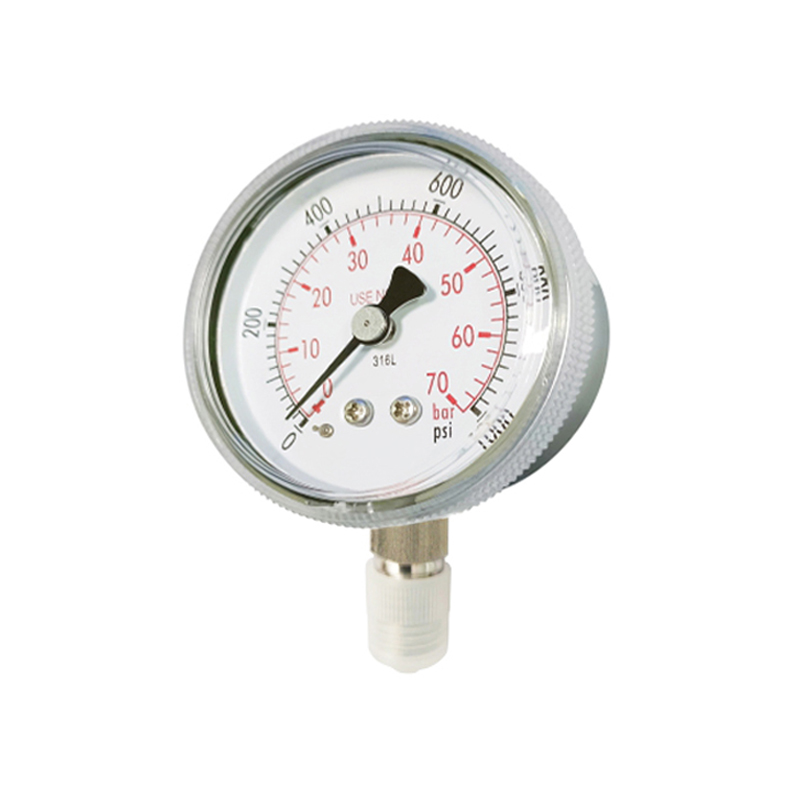
Sep . 12, 2024 15:50 Back to list
Difference Between Differential and Absolute Pressure Gauges
The Difference Between Differential and Absolute Pressure Gauges
Pressure measurement is fundamental in various industrial applications, and two common types of pressure gauges used are differential pressure gauges and absolute pressure gauges. Understanding the differences between these two types is essential for selecting the right tool for specific applications.
Absolute pressure gauges measure pressure relative to a complete vacuum (zero pressure). This means that an absolute gauge reads atmospheric pressure as a specific numerical value. The reference point for these gauges is a perfect vacuum, which is why they are crucial in applications where knowing the true pressure is essential. Industries that utilize absolute pressure gauges include vacuum systems, weather stations, and some scientific research applications. For instance, an absolute gauge would show a reading of 101.3 kPa (kilopascals) at sea level under standard atmospheric conditions. This characteristic is particularly important in processes where accuracy is critical, such as in the calibration of sensors and instruments.
On the other hand, differential pressure gauges measure the difference in pressure between two points. Instead of measuring against a vacuum, these gauges compare pressure levels between two sources, which could either be a process environment or the atmosphere. Differential gauges are commonly used in applications such as HVAC systems, flow measurements, and filter monitoring. For example, in an HVAC system, a differential pressure gauge can monitor the pressure drop across a filter, indicating when it needs to be cleaned or replaced.
difference between differential and absolute pressure gauges

One significant aspect of the operation of differential pressure gauges is that they can provide readings that indicate whether one part of a system has higher pressure than another
. This capability is invaluable for monitoring systems' performance, ensuring optimal functioning, and preventing potential failures.The selection between absolute and differential pressure gauges primarily depends on the application requirements. If the pressure needs to be measured in relation to a vacuum for precise control, then absolute pressure gauges are the optimal choice. In contrast, if the interest lies in the pressure differences within a system, differential gauges are more appropriate.
In summary, while both differential and absolute pressure gauges play essential roles in pressure measurement, they serve different purposes. Understanding these differences allows engineers and technicians to choose the proper instruments for effective monitoring and control in various sectors. Proper application of these gauges ensures efficient operations and contributes to maintaining safety and performance standards in industrial environments.
-
High-Precision 5 Valve Manifold Differential Pressure Gauge Suppliers
NewsApr.29,2025
-
High-Precision Diaphragm Vacuum Pressure Gauges Manufacturers & Quotes
NewsApr.29,2025
-
Omega Differential Pressure Gauges High Accuracy & Durability
NewsApr.28,2025
-
Low Pressure Differential Pressure Gauges Precision Solutions & Quotes
NewsApr.28,2025
-
Digital Diaphragm Pressure Gaauge Precision Measurement & OEM Quotes
NewsApr.28,2025
-
Differential Pressure Gauge China Price High-Accuracy & Best Quotes
NewsApr.28,2025
